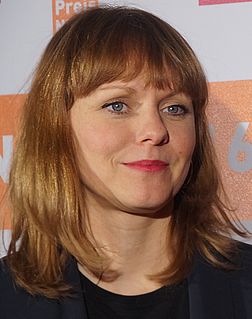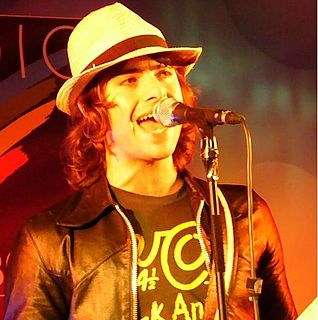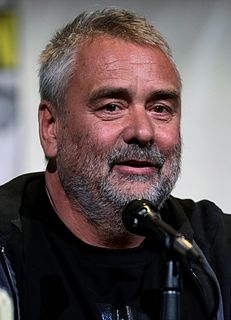A Quote by Maren Ade
For me, it was always clear that Toni Erdmann is more a film about what globalization, capitalism, does with private relationships much more than making a "political" film. It's more interesting to raise questions, because I don't feel in a position to "make a statement" with the film. Toni Erdmann comes from a completely different generation then his daughter, it's the post-war generation, they were very politically engaged. They raised their children with a lot of human worldviews, sent them out in the world believing in a world without borders.
Quote Topics
About
Always
Because
Believing
Borders
Capitalism
Children
Clear
Daughter
Different
Does
Engaged
Feel
Film
Generation
Globalization
His
Human
Interesting
Lot
Make
Making
Me
More
Much
Out
Political
Politically
Position
Post
Post-War
Private
Questions
Raise
Raised
Relationships
Sent
Statement
Than
Them
Then
Very
War
Were
Without
World
Related Quotes
I doubt that there are many screenplays of movies that either of us have seen over the past 10 years that were first drafts, or were the work of purely one person. In my world, the actors and the director are all made of paper, and they do exactly what I say. I feel much more in control of the finished work. I feel like the statement that I'm making - even though it's in a medium by no means as glamorous or as widely recognized as film - is at least the statement that I wanted to make. That's a lot more important to me than the allure of working for Hollywood.
Leon Golub was a painter. He was an artist struggling to make it in the New York City art world, but at the same time he was a very political guy, and engaged in the world around him. In the film, we saw how that world eventually encroached into his painting. One of my favorite lines in the film was how he had to be more precise, 'but now the pants have wrinkles, I hated to do it, but I had to do it.'
I'm very, very serious about what I do. I think there are a lot of people out there sort of thinking it's anybody's game. You know, "You pick up a camera and you make a movie." My experiences over the years have taught me there's a lot more than that to making a film - there's also getting the film seen, and all kinds of complex realities.
My parents were both first-generation Irish Catholics raised in Brooklyn. But it was more for me - it was that women of that generation were even less likely to express themselves, more likely to have that active interior life that they didn't dare speak out. So I was interesting in women of that era. I was interested in the language of that era. There's so much. And, certainly, this is cultural, so much there wasn't spoken about.
You know, it's not my film [Valerian], it's really their film. It's very strange. And maybe because it's more when you comes to the Marvel films it's way much more organized and plan, you know, they planned. Okay, we have Thor here, we have this and then we do The Avengers, and then we group. You know, it's much more organized. So maybe there is a little less freedom at the end for the creative people. Where I did the entire opposite. I let them help me, you know. So that's also why maybe they were so involved.
The world's geography is not realistic. Geography is not real. Borders are only closed to people but they are open to products. There is another type of geography outside of this matrix. Because of this we noticed we were talking about much more than just Latin America. That was very important to put the film on another level. Based on this idea, we knew that we were not in this world any longer.
For me, as a film goer, I like nothing more than to sit in the cinema, have the lights go down and not know what I'm about to see or unfold on-screen. Every time we go to make a film, we do everything we can to try to systematise things so we're able to make the film in private, so that when it's finished it's up to the audience to make of it what they will.
I'm planning some films in the U.K., and it will have pros and cons. It takes a lot more time to set up a film in the U.K., because you can't rely on much. In Greece, friends show up and bring what they can and you make the film. Well, that's a bit simpler than how it really is. But when you make a film with proper industries, it takes more time to synch all these things.
I think that because of YouTube, because of MySpace, because of the digital domain that we have on the Internet, the younger generation is much more open to information. I think it's so much easier for them to gain information and trade information, and they have become more aware. In some cases, more aware than their own parents and adults, as to what's going on in the world. I find that really intriguing and interesting, and I think there is a brewing of a whole new generation of activists coming.






























